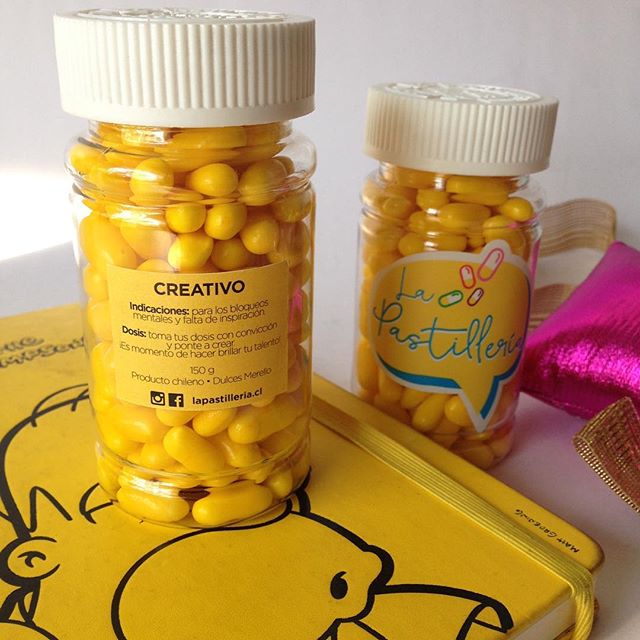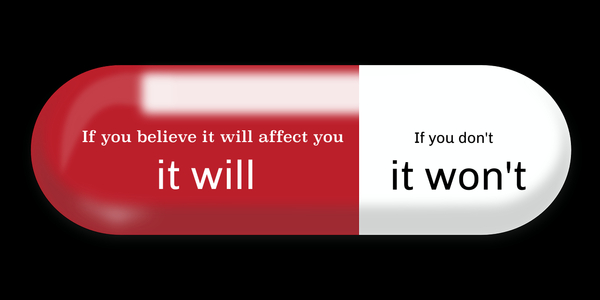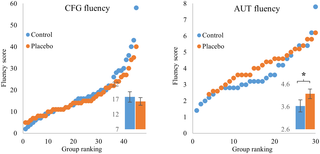Placebo and creativity

A placebo is a substance or treatment that does not contain any active ingredient or rest in a physiological procedure out of the placebo effect, but still achieves a real change. The placebo effect is a psychobiological phenomenon, but it generates authentic physical changes, something that can be observed, for example, in the heartbeat, blood pressure, chemical activity of the brain and even, with neuroimaging techniques, in the selective activation of different brain regions. The effects of placebo have been studied in a wide range of conditions and disorders including pain relief, depression, anxiety, fatigue and even in some symptoms of neurodegenerative diseases such as Parkinson’s.
The psychobiological effects of placebo can be induced by expectations, verbal suggestions and classical conditioning. Existing studies suggest several different neurobiological pathways for placebo, which can be activated in different contexts. When patients who are in pain are typically given drugs, one thing the medicine does is cause the brain to release natural, pain-relieving chemicals like endorphins and dopamine. The placebo-mediated analgesia, for example, the most studied phenomenon so far, is characterized by the production of endogenous opioids and dopamine to reduce the signal of pain that courses through the spinal cord. Thus, when given a placebo (in the right environment and through the right means), the brain will release those chemicals naturally, on it’s own. For medicinal patients with physical ailments, this is an inspiring development occurring in medicine today.
This route shows how a “superior” process, such as the expectation of an improvement, can regulate an immediate peripheral sensation such as pain. In the case of the treatment of Parkinson’s disease, it has been seen that the placebo effect involves the dorsal striatum, which intervenes in motor control, and the release of dopamine in the ventral striatum, which is part of the reward system. It is a completely different system than pain, which suggests that the placebo is biologically complex and can recruit different brain areas.

Placebos have been used especially in the development of drugs, where placebos are tested as control, since the expectation of being treated can influence the results and the placebo makes it practically impossible to detect if you are receiving the active substance or a similar vehicle without active ingredients. Recently different groups of researchers have begun to study the possibilities of placebos to improve athletic performance and cognitive abilities. In the first field it has been seen that people who have received a placebo labeled to improve performance raise more weights and have a better performance on the bicycle than when they are not given anything 1. The body of those athletes who believe they have received an enhancing element, shows an enhanced response. In the field of brain activity it has been seen that an inert substance presented to the volunteer as a drug that improves brain activity produced an improvement in a memory test, compared to another group that received the same substance but to which they were said it was an inactive control.

The concept of creativity is not well defined and there is no measure of general acceptance to evaluate it. For some the concept refers to the product of creative activities while others think it reflects the personality of the creator of the product. Even so, it has been studied whether the placebo effect can improve creativity. Liron Rozenkrantz and his group at the Weizmann Institute in Israel 2 asked 90 university students to smell a substance that included cinnamon. Half of them were told that this substance had been designed pharmacologically so that inhaling through the nose allowed to increase creativity. The other half was not told anything. Then, all the participants completed a series of tests aimed at evaluating their creativity: one involved rearranging a series of squares on a computer screen in different ways and the other required thinking about new uses for everyday objects such as shoes, pins or buttons. Those students who were told that the aromatic substance increased creativity scored better on the test measures of this ability. For example, they designed configurations of more striking shapes and also proposed more novel applications for the objects of habitual use.
According to one of the authors of the study «the improvements were not enough to become the next Picasso, but they were significant». The placebo made the volunteers feel that they had extra reinforcement, and that gave them a feeling of confidence and made them take more risks. Many people are afraid of creative tasks and if they are asked to do something original they often get stuck and think they cannot do anything that is really worthwhile. Apparently, the placebo helps to avoid that mind blockade and it makes people feel that they can be creative and let their imagination go.
It also works what is known as verbal placebo. It is enough to tell people that they are creative so that there is an increase in their creativity. It is a result that teachers can use to make their students develop a more original thinking and is most likely effective in other areas. It is not necessary to give them any pill or liquid, it seems enough to tell them that they are capable of doing things that are worthwhile, emphasize their past successes and generate a welcoming atmosphere where that child feels that this is “his place” and increases the confidence in himself. A classroom can and should be a place where wonderful things happen.
It also works what is known as the “honest placebo”. It is so called when the person knows that what he is taking does not have any real component but even so it has been seen that these placebos without traps improve the symptoms in people with irritable bowel syndrome or with chronic pain. That avoids one of the problems of medical placebos, which are considered by some professionals and associations as unethical, because they break the trust between doctor and patient by introducing a deception.
These studies also reinforce a line previously raised that creativity, like almost all of the characteristics of the person, is not a fixed factor. Obviously there are individual differences, but the way teachers have to respond to students’ work or how companies and organizations reward their employees have a huge impact and these responses can encourage or suppress creativity. A study has found that hospitality employees in China who received more positive comments from their bosses were more creative in solving everyday problems. 3 Another study carried out at a car parts manufacturing plant in the Midwest of the United States showed a similar result but one that had the opposite effect: employees who suffered abusive behavior from their bosses, both direct managers and others at higher levels of responsibility, showed less creativity 4. The next step is to verify that these effects observed in the conditions set for an investigation are also maintained in the real world. The possibilities are really attractive: improve as a society the art, literature, science, advertising … all that huge variety of areas and circumstances where creativity is a crucial element. Although sometimes they sell them very expensive, as in the case of homeopathy, placebos are very easy and cheap to manufacture and our brain has enormous possibilities to explore without falling into pseudoscience.
References
- Maganaris CN , Collins D, Sharp M (2010) Expectancy Effects and Strength Training: Do Steroids Make a Difference? The Sport Psychologist 14(3): 272-278. ↩
- Rozenkrantz L, Mayo AE, Ilan T, Hart Y, Noy L, Alon U (2017) Placebo can enhance creativity. PLoS One 12(9): e0182466. ↩
- Hon AHY, Chan WWH, Lub L (2013) Overcoming work-related stress and promoting employee creativity in hotel industry: The role of task feedback from supervisor. Int J Hospitality Management 33: 416-424. ↩
- Liu D, Liao H, Loi R (2012)The Dark Side of Leadership: A Three-Level Investigation of the Cascading Effect of Abusive Supervision on Employee Creativity. Acad Manage J 55(5): 1187-1212. ↩
1 comment
[…] Hain indartsua da plazebo efektua, ezen errendimendu fisikoa ez ezik, mentala ere hobetu dezakeela. José Ramón Alonsoren artikulua: Placebo and creativity […]